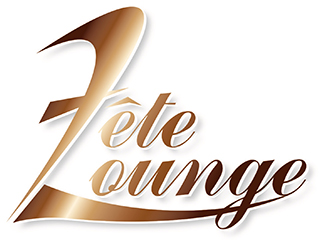Being a responsible bar in a binge drinking culture
What is binge drinking?
The NHS defines binge drinking as “drinking lots of alcohol in a short space of time or drinking to get drunk”. (NHS Digital, 2019)
Because everybody is different, it is not easy to say exactly how many units in one session count as binge drinking. The definition used by the (Office for National Statistics, 2018) for binge drinking is having over 8 units in a single session for men and over 6 units for women.
Of course, people may drink at different speeds or drink over a different amount of time and this definition may not apply to everyone.
What we can say is that the risks of short-term harms like accidents or injuries increase between two to five times from drinking 5-7 units.3 This is equivalent to 2-3 pints of beer. (Department of Health, 2016)
Cultural reference
(Marsh & Stefanou, 2016) drew a great comparison of cultures in The Guardian.
France
“In France people drink extensively and steadily, but in small units. Even though I have seen a couple of people drunk, I have never seen any aggression. At a dinner party you will ordinarily have an apéritif, three glasses of different wines and a digestif but all in small quantities. There will also be water on the table. The guidelines in France are sensible, although here there is a tradition of ignoring regulations and laws anyway. The French drink to savour the flavours and to enhance their food.”
Italy
“In Italy, consuming alcohol revolves around food. So you are either drinking to accompany your meal (wine will always be on the table at an Italian meal), or you are being given free snacks to soak up your drink when at a bar. So the idea is that you order a drink at a standardised price and you are given crisps or other bite-sized food. Or you can help yourself from a generous buffet
UK
“In the UK the notion of enjoying yourself in the evening without alcohol is so unusual it can lead to you being called a freak (or at least miserable and antisocial) whereas drinking yourself insensible is not only acceptable, it is admired. Unfortunately (and I am a drinker) all advice given seems to be decided upon somewhat arbitrarily and although most doctors agree alcohol is bad for you, limits seem to be plucked out of the air with no real evidential statistics”.
Belgium
“Beer sold in every frituur [chip shop], open bottles of wine to help yourself to in supermarkets – but drunkenness is socially unacceptable. The guidelines seem fair enough, especially having at least two non-drinking days a week.”
US
“We would have a lot less underage drinking problems if we lowered the drinking age to 18. Young adults are getting targeted at parties and social events at universities where police know there will be alcohol and the people who are there and under 21 get underage drinking charges (and people over 21 get charged with the supply of alcohol to minor). I am not even a huge drinker, just seems absurd that freshman and sophomores have to be sneaky about it, which leads to more issues. There is also a binge-drinking culture generally in the US”
It can be argued one of our biggest problems in the UK is connecting alcohol with food on a consistent level. While many ‘foodies’ will pair their wines/cocktails with a wide array of fine dining, the reverse seems the issue. Encouraging a night out of drinking with food as standard, as opposed to the “kebab” at the end of an already heavily induced night.
The responsibility of your bar
Your local bar will not serve you if you appears inebriated. Of course, some people can hold their liquor very well, and we may not realise that you are drunk until it is too late. Once this is clear to us, you will not be served and the bar will fill in a refusals log. The customer may claim you’re acting illegally, but this is about acting responsibly. Our role is to make sure you have a great experience with us and come back again. This will involve you remembering the night and not ending it in the bar toilets.
Your bar will also have a dispersal policy detailing how their customers will leave the premises. It is best-practice to allow customers to wait inside the venue for a taxi to avoid noise and nuisance issues on the streets.
We have a responsibility to our customers and our neighbours, trying to establish an equilibrium between both……. enjoy your nights out and drink responsibly.
References
- Department of Health, 2016. UK Chief Medical Officers’ Alcohol Guidelines Review: Summary of the proposed new guidelines. [Online] Available at:https://www.gov.uk/government/uploads/system/uploads/attachment_data/file/489795/summary.pdf [Accessed 9 April 2019].
- Office for National Statistics, 2018. Adult drinking habits in Great Britain, 2017. [Online] Available at:https://www.ons.gov.uk/peoplepopulationandcommunity/healthandsocialcare/drugusealcoholandsmoking/bulletins/opinionsandlifestylesurveyadultdrinkin[Accessed 9 April 2019].
- Drinkaware, 2019. Bingedrinking. [Online] Available at:https://www.drinkaware.co.uk/alcohol-facts/drinking-habits-and-behaviours/binge-drinking/ [Accessed 2019 April 2019].
- Marsh, S. & Stefanou, E., 2016. Which countries have the worst drinking cultures?. [Online] Available at:https://www.theguardian.com/society/2016/apr/15/which-countries-worst-alcohol-binge-drinking-cultures [Accessed 9 April 2019].
- NHS Digital, 2019. Binge Drinking. [Online] Available at:https://www.nhs.uk/live-well/alcohol-support/binge-drinking-effects/[Accessed 9 April 2019].
